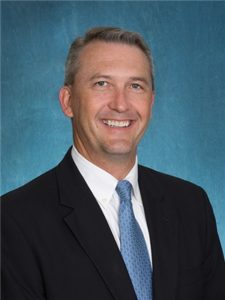(The Heart of Texas P-20 Council includes representatives from K-12 education, higher education and employers. They meet regularly to help coordinate efforts to launch our young people into productive lives as workers and citizens. This post is one in a monthly series of posts intended to share information about the work of this important group in our community. For more posts in this series, click here: P-20 education. – ABT)
By Christine Holecek
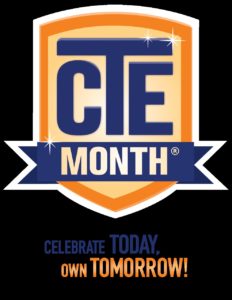 ESC Region 12 and the HOT P-20 Council celebrates February as Career and Technical Education Month (CTE), as well as, the kick -off of Groundhog Job Shadowing. Students and faculty in Region 12 will join others across the nation during the month of February to celebrate national CTE month. This year’s tagline is Celebrate Today, Own Tomorrow! CTE Month provides CTE programs across the country an opportunity to demonstrate how CTE makes students college and career ready and prepares them for high-wage, high-skill, and high-demand career fields. School districts are encouraged to promote CTE programs and give their students the opportunity to job shadow during the month of February. February 2nd is Groundhog Day and a perfect day to job shadow.
ESC Region 12 and the HOT P-20 Council celebrates February as Career and Technical Education Month (CTE), as well as, the kick -off of Groundhog Job Shadowing. Students and faculty in Region 12 will join others across the nation during the month of February to celebrate national CTE month. This year’s tagline is Celebrate Today, Own Tomorrow! CTE Month provides CTE programs across the country an opportunity to demonstrate how CTE makes students college and career ready and prepares them for high-wage, high-skill, and high-demand career fields. School districts are encouraged to promote CTE programs and give their students the opportunity to job shadow during the month of February. February 2nd is Groundhog Day and a perfect day to job shadow.
“The activities planned over the next month will illustrate the rigor and relevance CTE courses offer our students,” said Fred Hills, Chair of the HOT P-20 Council. “By partnering with the business community, CTE programs are investing in students and providing them with the latest technology and skills that will prepare them to become successful employees and future leaders”
CTE is a major part of the solution to a myriad of national economic and workforce problems, such as high school dropout rates, a weakened economy, global competitiveness and massive layoffs. At a time when the opportunity for employment is so critical, CTE programs in every community are ensuring students are equipped with the skills to successfully enter the workforce.
 Members of the Greater Waco Chamber of Commerce have expressed interest in hosting high school students in the workplace for shadowing experiences. (Click here for the list of members and contacts.) The HOT P-20 Council has provided materials for school districts and employers to utilize for Job Shadowing at http://www.hotp20.org/page2.
Members of the Greater Waco Chamber of Commerce have expressed interest in hosting high school students in the workplace for shadowing experiences. (Click here for the list of members and contacts.) The HOT P-20 Council has provided materials for school districts and employers to utilize for Job Shadowing at http://www.hotp20.org/page2.
Please share your CTE program initiatives and job shadowing successes to [email protected].
 This Act Locally Waco blog post was written by Christine Holecek. Christine is an Education Specialist at Education Service Center Region 12 in Waco. She has worked in the area of Adult Education and Career & Technical Education for the past 25 years. She earned an AAS degree from MCC, a BAAS and Master’s Degree from the University of North Texas and is currently enrolled in the Doctoral Program in Educational Leadership and Policy Studies at Tarleton State University.
This Act Locally Waco blog post was written by Christine Holecek. Christine is an Education Specialist at Education Service Center Region 12 in Waco. She has worked in the area of Adult Education and Career & Technical Education for the past 25 years. She earned an AAS degree from MCC, a BAAS and Master’s Degree from the University of North Texas and is currently enrolled in the Doctoral Program in Educational Leadership and Policy Studies at Tarleton State University.
The Act Locally Waco blog publishes posts with a connection to these aspirations for Waco. If you are interested in writing for the Act Locally Waco Blog, please email [email protected] for more information.
(The Heart of Texas P-20 Council includes representatives from K-12 education, higher education and employers. They meet regularly to help coordinate efforts to launch our young people into productive lives as workers and citizens. This post is one in a monthly series of posts intended to share information about the work of this important group in our community. For more posts in this series, click here: P-20 education. – ABT)
By Christine Holecek
The TSI Assessment (TSIA) is part of the Texas Success Initiative program designed to help your college or university determine if you are ready for college-level course work in the areas of reading, writing, and mathematics. If you are an incoming college student in Texas, you are required to take the TSI Assessment – unless you are already exempt through ACT or SAT or other exemptions – to determine your readiness for college-level work. Based on how you perform, you may either be enrolled in a college-level course and/or be placed in the appropriate developmental course or intervention to improve your skills and prepare you for success in college- level courses.
The HOT P-20 Council is addressing some strategies to help students and ISD’s better prepare for the TSIA and move towards College Readiness. In a recent meeting held at Education Service Center Region 12 the following strategies were addressed.
- Develop a TSIA test taking strategies guide to share out:
- Describe the type of writing prompt (use of spare paper, proof reading, use of paragraphs)
- Pay attention to the word count
- This is not the STAAR writing test
- How to physically and mentally prepare for the TSIA
- Recommend timing strategies – Testing freshman as they complete Algebra I
- Recommend resources, apps, and other tools to help students better prepare for the test
- Offer varied TSIA Boot Camp options to include:
- test taking strategies/Pre-Assessment Activity/test preparatory option
- intense training on TSI sections with test taking and college preparation strategies, Math/Writing
- refreshers for students who haven’t taken Math or writing in over a year before taking the TSI
- Make TSIA testing available to HS and college faculty – Algebra II and English III teachers to take the test and help formulate questions that are similar
- Promote the Waco Querium (A computer-based program for reinforcing STEM skils) cohort among local schools and colleges
- Disaggregate TSIA diagnostic data by ISDs and share out with individual school districts
- Share aggregate TSI diagnostic trend data with the community, use in College Prep courses and share with high school curriculum coordinators
- Getting the word out on the importance of the TSIA to parents, faculty and community
- Emphasize the importance of the College Prep courses to students, parents, faculty and school administrators
The HOT P-20 Council meets monthly at ESC Region 12 from 8:00 – 9:00. Please contact [email protected] or [email protected] to get involved or for more information.
 This Act Locally Waco blog post was written by Christine Holecek. Christine is an Education Specialist at Education Service Center Region 12 in Waco. She has worked in the area of Adult Education and Career & Technical Education for the past 25 years. She earned an AAS degree from MCC, a BAAS and Master’s Degree from the University of North Texas and is currently enrolled in the Doctoral Program in Educational Leadership and Policy Studies at Tarleton State University.
This Act Locally Waco blog post was written by Christine Holecek. Christine is an Education Specialist at Education Service Center Region 12 in Waco. She has worked in the area of Adult Education and Career & Technical Education for the past 25 years. She earned an AAS degree from MCC, a BAAS and Master’s Degree from the University of North Texas and is currently enrolled in the Doctoral Program in Educational Leadership and Policy Studies at Tarleton State University.
The Act Locally Waco blog publishes posts with a connection to these aspirations for Waco. If you are interested in writing for the Act Locally Waco Blog, please email [email protected] for more information.
By Scott Bland
Over the last 30 years there have been two trends in our educational system and the construction industry that have been slowly and steadily creating an issue that has the potential to create dramatic problems within our economy. The construction industry that is critical to our economic health is experiencing a massive talent drain that is not being renewed. Fortunately, there is a plan in place to bring talent back to the industry and reverse the stigma that has been created around jobs in construction. It’s important to first look at the two trends that created the issue.
During the last 30 plus years our education industry has been a “college or bust” model in which students were taught from the perspective that going to college after graduation was the only path to success. As a result, careers that didn’t involve a college degree were not presented as desirable paths to take after graduation. This has created a stigma against jobs in the construction industry and caused students to look at other options even if they have an interest and ability to work within the trades.
At the same time the education industry was steering students away from the construction industry, the industry itself was becoming more and more diverse and technically complicated. The process of building a home or commercial building has evolved far beyond what the shop classes of the 1970’s and 80’s were able to show students. From the miles of electrical and network wiring to the framing calculations involved in high pitched roofs and vaulted ceilings, the construction industry can no longer get by with an un-educated workforce.
What is not being taught to our high school students is the fact that there are jobs within the construction industry that pay at rates the same as or in many cases higher than jobs requiring 4 year degrees. A student graduating high school with a background in construction trades and who takes post graduate classes to receive certifications in the industry are suddenly qualified for hundreds of careers with pay ranges starting from $30 per hour and up. The lack of a talented applicant pool is so dire at this point; many trades companies will put these individuals into apprentice positions and work with them as they earn the certifications they need.
What is needed is a program within the high school system that a student who is interested in careers within the construction industry can get specific class instruction as well as hands on training in the field. We are so fortunate in Central Texas to have the Greater Waco Advanced Manufacturing Academy (GWAMA) that can serve as the home for a construction sciences program. One of the many advantages to GWAMA is that it is open to students from any district in Central Texas. The GWAMA program has already had tremendous success within the welding, metalworking, and health care industries and there is space available for a construction services division.
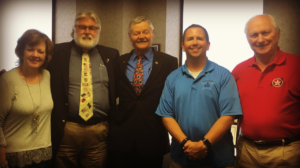
A few of the local leaders who have been working to plan the Greater Waco Construction Sciences Academy.
The program that is being proposed would begin in the 10th grade and would be exclusively taught in the classroom in that first year. The first year would be the time when the students would be exposed to all facets of the construction industry as well as being taught the basics of construction. Students would be taught the basics of plumbing, electrical, heating and air conditioning, framing, and masonry so they could begin to get a feel for their primary interest. This year would also involve receiving their OSHA certifications and CPR training to emphasize the importance of safety on the job sites.
In the second year, the students would have much more specific classroom training geared towards their primary areas of interest. At least half of their time will be spent on job sites to begin get a feel for what a career in the industry is really like. NeighborWorks Waco has dedicated a yearly construction site for students in the program to receive instruction in their second year.
In the final year the students will apply for, interview, and work within the industry on a paid internship. The students will have one day a week in the classroom and spend the other 4 days in a paid internship at a company within their primary area of interest. This is the model that companies within the industry are encouraging and the model that they will support by providing these internships. From the industry perspective, this gives them the opportunity to make sure students are being exposed to the concepts and practices that give them the best chance at being successful.
For the students within the program, they will graduate with a diploma that has endorsements from the Heart of Texas Builder’s Association, the Texas Association of Builder’s and the Waco Association of General Contractors. That endorsement is the way that a student can show a potential employer that they have training and instruction that moves them ahead of other applicants. That endorsement may also place them further ahead within an advanced certification program.
The message that needs to be out there is that the construction industry is no longer an industry to be stigmatized as a place for students that can’t make it in college. The salaries, benefits, and security of jobs in construction no longer lags behind professions requiring advanced degrees. The complexities of the industry also require students who are capable of working with their minds just as well as working with their hands.
The construction sciences program at GWAMA, if approved, will provide students with an alternate path to success from the traditional “college only” model. It will provide a reason to continue going to school for those students who have no interest or desire to go to college. For a student whose family is involved in the construction industry, it will provide a validation and sense of pride in that work which has been missing for far too long. And for the student who desires a college education but cannot see any possible way to pay the costs – consider the benefits of having a high paying job in the construction trades to earn money to pay for that college degree! This program provides a pathway to a career that can pay those tuition costs. A young person who has construction industry certifications, and a 4-year degree, and who has no student debt is a tremendous benefit to our economy. However, a young person with only a 4-year degree and who owes thousands in student loan debt is sadly far more common.
(Note: The Waco ISD Board of Trustees will be hearing an update on the Construction Academy at their October 20 board meeting.)
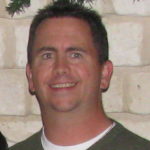 Scott Bland was born and raised in Waco. He is an alumnus of Baylor University. He worked for Highland Homes in the Dallas area from 1998 to 2001, then joined the United States Secret Service as a Special Agent after the 9/11 attacks. He retired his commission in late 2006 to return to Waco and take over the family business, Jim Bland Construction, where he has served as Owner and President of the company for the last 10 years. He is currently the President of the Heart of Texas Builder’s Association as well as a member of the Board of Directors for the Greater Waco Chamber of Commerce.
Scott Bland was born and raised in Waco. He is an alumnus of Baylor University. He worked for Highland Homes in the Dallas area from 1998 to 2001, then joined the United States Secret Service as a Special Agent after the 9/11 attacks. He retired his commission in late 2006 to return to Waco and take over the family business, Jim Bland Construction, where he has served as Owner and President of the company for the last 10 years. He is currently the President of the Heart of Texas Builder’s Association as well as a member of the Board of Directors for the Greater Waco Chamber of Commerce.
The Act Locally Waco blog publishes posts with a connection to these aspirations for Waco. If you are interested in writing for the Act Locally Waco Blog, please email [email protected] for more information.
By Fred Hills
Inquiry. Research. The ability to come up with questions and actively, rigorously pursue answers to those questions is at the heart of education. It is the key to life-long learning, to new inventions, to solving problems, and to improving the way we live and work together in our community and in our world. Just as important as being able to find answers is the ability to communicate findings clearly so that they can be of use to the wider world. At McLennan Community College, students practice inquiry and research throughout the academic year. We would like to invite you to hear about some of their findings and to see for yourself how well they communicate what they have learned in their explorations.
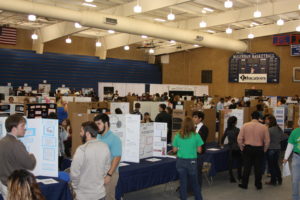 Every fall and spring semester McLennan Community College conducts an event to showcase student research projects. The event, called Scholar Day, is an opportunity for students from across campus to share the results of their inquiry and the impact it has on our community. Participating students come from a wide variety of disciplines including Biology, Chemistry, Engineering, Management, Marketing, Music, and Respiratory Care, among others.
Every fall and spring semester McLennan Community College conducts an event to showcase student research projects. The event, called Scholar Day, is an opportunity for students from across campus to share the results of their inquiry and the impact it has on our community. Participating students come from a wide variety of disciplines including Biology, Chemistry, Engineering, Management, Marketing, Music, and Respiratory Care, among others.
Research projects at MCC are student initiated with faculty helping guide them through their exploratory work. Students then present findings through scholarly presentations, exhibits, poster boards, art work, music, and prototypes with the campus and the community. Research not only prepares the student for their chosen career path, but will help them if they choose to further their education beyond MCC.
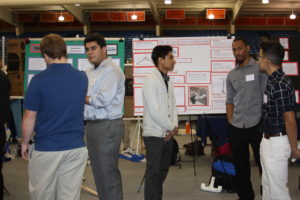 This semester’s program includes over 20 presentations that address timely topics affecting our world today, for example undocumented students in higher education, using vitamin C to fight cancer, and the effects of violent video games on gamers. Several presentations tackle medical topics, like adult respiratory distress syndrome, interstitial lung disease, and LSVT BIG and VOICE therapy on Parkinson’s disease. Scholar Day will also include a few unique items, such as sculptures, painting, and pottery from the Fine Arts department, and inventions and “Rube Goldberg” machines from the Engineering department. Last fall saw over 300 students participate, a number that continues to climb each semester.
This semester’s program includes over 20 presentations that address timely topics affecting our world today, for example undocumented students in higher education, using vitamin C to fight cancer, and the effects of violent video games on gamers. Several presentations tackle medical topics, like adult respiratory distress syndrome, interstitial lung disease, and LSVT BIG and VOICE therapy on Parkinson’s disease. Scholar Day will also include a few unique items, such as sculptures, painting, and pottery from the Fine Arts department, and inventions and “Rube Goldberg” machines from the Engineering department. Last fall saw over 300 students participate, a number that continues to climb each semester.
Come join our students in the excitement of academic inquiry and exploration! If you would like to attend MCC’s Scholar Day, it will be at Highland Gym on Friday, April 22 from 10 to 1 PM. All students and community members are invited to join us. If you need any more information, please contact Dr. Staci Taylor at [email protected].
 Dr. Fred Hills is the current president of the HOT P-20 and Dean of Arts, Science and Business at McLennan Community College. He has worked and lived in the Waco community for over 20 years and has served on the HOT P20 for the last four years.
Dr. Fred Hills is the current president of the HOT P-20 and Dean of Arts, Science and Business at McLennan Community College. He has worked and lived in the Waco community for over 20 years and has served on the HOT P20 for the last four years.
The Act Locally Waco blog publishes posts with a connection to these aspirations for Waco. If you are interested in writing for the Act Locally Waco Blog, please email [email protected] for more information.
by Fred Hills
Few things are more important to the prosperity of our community than our educational systems. As citizens, it is our responsibility to keep up to date on the state of those systems, but that is sometimes difficult to do. Where can you get objective information about how well the schools systems are performing? How can a “lay” person get in depth information about some of the important decisions being made that have the potential to affect our children and our economic prospects? How can we get that information we need to be informed, responsible parents, teachers and community members when it comes to education? Fortunately, an opportunity is on the horizon to help us do just that.
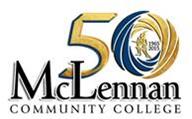 The Heart of Texas P-20 Council & Prosper Waco are cohosting this year’s State of Education in the Heart of Texas on Tuesday, April 19 from 11 AM to 1:30 PM at the McLennan Community College Conference Center. The community is invited.
The Heart of Texas P-20 Council & Prosper Waco are cohosting this year’s State of Education in the Heart of Texas on Tuesday, April 19 from 11 AM to 1:30 PM at the McLennan Community College Conference Center. The community is invited.
The forum will provide statistics and information on the progress of local educational efforts followed by panel discussions giving students, industry partners and educational leaders the opportunity to share their perspectives on education in central Texas. Prosper Waco will also share their ongoing efforts in bringing together collaborating partners from the greater Waco area in cooperatively addressing educational issues in our community.
We are honored to have Texas’s House Representative Jimmie Don Aycock as our lunch keynote speaker. Rep Aycock represents District 54 and currently serves as the chair of the Public Education Committee and a member of the Defense & Veterans’ Affairs Committee. He will share his perspectives on educational policy in Texas.
The agenda is as follows:
- 11:00-11:10 a.m.: Introduction by Fred Hills, Heart of Texas P-20 Council and Matthew Polk, Executive Director of Prosper Waco
- 11:10-11:30 a.m.: Presentation: Statistics of Education in the Heart of Texas
- 11:30-11:50 a.m.: Industry Panel Discussion
- 11:50-12:10 p.m.: Student Panel Discussion
- 12:10-1:00 p.m.: Lunch & Keynote Speaker, Rep. Jimmie Don Aycock
- 1:00-1:30 p.m.: Updates from the Heart of Texas P-20 Council and Prosper Waco
Registration cost is $15 which includes lunch. All are invited and welcome to register at Region 12 ESC’s website txr12.escworks.net/catalog/search.aspx, Session #88565. If you have any questions about the forum, contact either Fred Hills at [email protected] or Chris Holecek at [email protected].
 Dr. Fred Hills is the current president of the HOT P-20 and Dean of Arts, Science and Business at McLennan Community College. He has worked and lived in the Waco community for over 20 years and has served on the HOT P20 for the last four years.
Dr. Fred Hills is the current president of the HOT P-20 and Dean of Arts, Science and Business at McLennan Community College. He has worked and lived in the Waco community for over 20 years and has served on the HOT P20 for the last four years.
(The Heart of Texas P-20 Council includes representatives from K-12 education, higher education and employers. They meet regularly to help coordinate efforts to launch our young people into productive lives as workers and citizens. This post is one in a monthly series of posts intended to share information about the work of this important group in our community. For more posts in this series, click here: P-20 education.)
by Christine Holecek
What is Labor Market Information (LMI)? Some people believe the LMI is largely made-up information. But it is actually information that is pulled from premier data sites. National data is found at the bureau of labor and statistics http://www.bls.gov. State data is found through the Texas Workforce Commission, Tracer 2 website http://www.tracer2.com. Labor Market Information is broken down in codes. The industry codes are called NAICS, Occupational Codes are called SOC, and Training Codes are referred to as CIP.
NAICS, the North American Industry Classification System, is the standard used by Federal agencies in classifying businesses for collecting, analyzing, and publishing statistical data related to the U.S. business economy. SOC, Standard Occupation Classification – used by Federal agencies to classify workers into occupational categories for collecting, calculating, disseminating data. Workers are classified into one of over 820 occupations. Occupations are combined to form 23 major groups, 96 minor groups, and 449 broad occupations. Each broad occupation includes detailed occupation(s) requiring similar job duties, skills, education, or experience. CIP, Classification of Instructional Programs – used by the National Center for Education Statistics to collect, collate, analyze, and report full and complete statistics on the condition of education. The CIP functions as a taxonomic scheme to support the tracking, assessment, and reporting of fields of study and program completion activity.
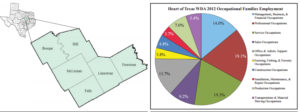 What does the demand for talent look like in the HOT Workforce Area? Waco is considered the Metropolitan Statistical Area for Heart of Texas (HOT) Workforce Solutions. LMCI analysts and users are particularly interested in K-12 educational programming because it is a pipeline to future employees. A list of targeted occupations can be found at http://www.yestoyouth.com/careers.html. Careers from Aviation to Welding can be found on the targeted occupation list. In demand career clusters include: Transportation, Manufacturing, Health Care, Business, Information Technology, Law and Public Safety. Below is the occupational projections from the Heart of Texas which can be found at http://www.tracer2.com/admin/uploadedPublications/2031_13_HeartOfTexas_2012-2022.pdf
What does the demand for talent look like in the HOT Workforce Area? Waco is considered the Metropolitan Statistical Area for Heart of Texas (HOT) Workforce Solutions. LMCI analysts and users are particularly interested in K-12 educational programming because it is a pipeline to future employees. A list of targeted occupations can be found at http://www.yestoyouth.com/careers.html. Careers from Aviation to Welding can be found on the targeted occupation list. In demand career clusters include: Transportation, Manufacturing, Health Care, Business, Information Technology, Law and Public Safety. Below is the occupational projections from the Heart of Texas which can be found at http://www.tracer2.com/admin/uploadedPublications/2031_13_HeartOfTexas_2012-2022.pdf
How does LMI meet the need of CTE Students? LMI Matters! It aims to help develop awareness of labor market information (LMI) and to show how it can be used effectively. It is for anyone who is helping adults or young people to explore opportunities for work or further learning. Our K-12 school system is training a future workforce that helps with the recruitment and retention of employers in our region. The HOT P-20 system includes pre-K through career as the pipeline of students that move on to post-secondary after high school graduation. The Greater Waco Chamber of Commerce has identified a talent pool of future employees and encourages training the following targeted industries: Advanced Manufacturing, Aerospace and Defense, Supply Chain Management, Health Care, Professional and Financial Services. Independent School Districts need to focus on the Labor Market Information and the targeted industries to ensure that we prepare our students today for jobs needed by tomorrow’s employers.
 This Act Locally Waco blog post was written by Christine Holecek. Christine is an Education Specialist at Education Service Center Region 12 in Waco. She has worked in the area of Adult Education and Career & Technical Education for the past 25 years. She earned an AAS degree from MCC, a BAAS and Master’s Degree from the University of North Texas and is currently enrolled in the Doctoral Program in Educational Leadership and Policy Studies at Tarleton State University.
This Act Locally Waco blog post was written by Christine Holecek. Christine is an Education Specialist at Education Service Center Region 12 in Waco. She has worked in the area of Adult Education and Career & Technical Education for the past 25 years. She earned an AAS degree from MCC, a BAAS and Master’s Degree from the University of North Texas and is currently enrolled in the Doctoral Program in Educational Leadership and Policy Studies at Tarleton State University.
The Act Locally Waco blog publishes posts with a connection to these aspirations for Waco. If you are interested in writing for the Act Locally Waco Blog, please email [email protected] for more information.
By Christine Holecek
Groundhog Job Shadow Day is a unique initiative dedicated to giving kids job  shadowing experiences. Groundhog Job Shadow kick-off day for 2016 will be February 2. On that day we will officially get going started on what we hope will be a spring blooming with job-shadowing opportunities in the Heart of Texas. The idea is to give more of our Waco area students opportunities to “shadow” a workplace mentor as he or she goes through a normal day on the job. This gives the student a chance to get an up-close look at how skills learned in school relate to the workplace.
shadowing experiences. Groundhog Job Shadow kick-off day for 2016 will be February 2. On that day we will officially get going started on what we hope will be a spring blooming with job-shadowing opportunities in the Heart of Texas. The idea is to give more of our Waco area students opportunities to “shadow” a workplace mentor as he or she goes through a normal day on the job. This gives the student a chance to get an up-close look at how skills learned in school relate to the workplace.
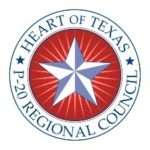 Groundhog Job Shadow Day is the joint effort of the Heart of Texas P-20 Council, Greater Waco Chamber of Commerce, Waco Business League, and Prosper Waco. McLennan Community College, Texas State Technical College and school districts in the Heart of Texas Region are also partners promoting this event.
Groundhog Job Shadow Day is the joint effort of the Heart of Texas P-20 Council, Greater Waco Chamber of Commerce, Waco Business League, and Prosper Waco. McLennan Community College, Texas State Technical College and school districts in the Heart of Texas Region are also partners promoting this event.
Job Shadowing is a Win-Win situation for all involved. For students it answers the age old question “Why do I have to learn this?” Shadowing demonstrates the importance of academics in reaching college and career goals. Shadowing also motivates students to learn by demonstrating the tangible application of classroom lessons.
For employers, Job Shadowing helps build a future workforce. Shadowing shows students career possibilities in different industries. Also the employee mentors get the feeling of personal satisfaction that comes from mentoring a young person. This opportunity offers a chance to share knowledge and skills and to help a child become a successful adult. Sometimes shadowing even leads to a long-term mentoring relationship.
Whether you are an employer, volunteer or teacher, participating in Groundhog Job Shadow Day is an easy and rewarding experience. Getting involved in Groundhog Job Shadow Day will only take a few hours of your time.
If you are an educator or an employer who would like to get involved, you can contact Christine Holecek at [email protected]. The HOT P-20 has posted some helpful job shadowing documents for you to share at: http://tinyurl.com/zynwu2r
For more information about the HOT P-20 Groundhog Job Shadow Day, please contact [email protected]
 This Act Locally Waco blog post was written by Christine Holecek. Christine is an Education Specialist at Education Service Center Region 12 in Waco. She has worked in the area of Adult Education and Career & Technical Education for the past 25 years. She earned an AAS degree from MCC, a BAAS and Master’s Degree from the University of North Texas and is currently enrolled in the Doctoral Program in Educational Leadership and Policy Studies at Tarleton State University.
This Act Locally Waco blog post was written by Christine Holecek. Christine is an Education Specialist at Education Service Center Region 12 in Waco. She has worked in the area of Adult Education and Career & Technical Education for the past 25 years. She earned an AAS degree from MCC, a BAAS and Master’s Degree from the University of North Texas and is currently enrolled in the Doctoral Program in Educational Leadership and Policy Studies at Tarleton State University.
The Act Locally Waco blog publishes posts with a connection to these aspirations for Waco. If you are interested in writing for the Act Locally Waco Blog, please email [email protected] for more information.
(The Heart of Texas P-20 Council includes representatives from K-12 education, higher education and employers. They meet regularly to help coordinate efforts to launch our young people into productive lives as workers and citizens. This post is one in a monthly series of posts intended to share information about the work of this important group in our community. For more posts in this series, click here: P-20 education.)
By Ashley Canuteson
I have had the privilege of meeting some incredible people through my line of work over the past several years. A key facet of my job as College & Career Readiness Coordinator for Midway ISD is to help make connections between public educators, higher education, and folks in “the real world” – all for the benefit of students. After all, students need to leave us ready for success beyond high school. But students shouldn’t be the only ones who benefit from a group of constituents coming together to share ideas and learn from each other. My experiences have led me to realize that various partnerships coming from all of these efforts are mutualistic – they are not done solely for the benefit of students; rather, they are formed to truly help educate an entire community about how we can all work together for the successful advancement of an economically sound society. Wow! That was a mouthful! So, what does that mean exactly? I can best share an example of the power of mutualistic partnerships by telling the story of a wonderful advocate and community leader.
Rick Tullis, president of Capstone Mechanical and member of the Midway ISD Board of Trustees, was named this summer as one of four state Business Leaders of the Year by the Career & Technology Association of Texas (CTAT). He received this recognition because of a nomination written by Donna McKethan of Waco ISD, Christine Holecek of Education Service Center Region 12, and me. Through our work with each other, we came to realize that we all had seen the power of Mr. Tullis’ influence in a variety of ways. In addition to his commitments to Midway ISD, Mr. Tullis has been an active board member of the Greater Waco Advanced Manufacturing Academy (GWAMA), the Board of Directors for the Waco Business League, the Baylor School of Engineering Board of Advocates, the Baylor Scott & White/Hillcrest Board of Visitors, and the Board of Directors for the Waco Chamber of Commerce. Looking at his level of involvement, one can quickly see that Mr. Tullis is invested in the overall success of the Waco community. It is because of this far-reaching commitment and willingness to serve that he continues to make a lasting impact in the educational realm; however, it doesn’t stop there.
I have had the personal honor of working with Mr. Tullis in some of his volunteer roles – most specifically, with his time on the Steering Committee of the Heart of Texas P-20 Council. What I have realized in that time is that Mr. Tullis brings to the table a vision of shared learning for all. He isn’t there simply as a business representative trying to advise educators on what the world needs in its future workforce, although he shares some great perspective on that topic! He is also there to learn about how he can bring his network of colleagues into the world of education so we can all work together on helping our students become successful. “Preparing students is a shared responsibility of families, schools, and business,” said Tullis in a July interview with Hometown News. And he believes this wholeheartedly.
Mr. Tullis was an integral part of the collaboration between Waco ISD and various other school districts and business leaders who came up with the concept of the Greater Waco Advanced Manufacturing Academy. As GWAMA was coming to life, the educators learned plenty about the need for skilled graduates that exists in our local manufacturing workforce. It is fair to say that our local business leaders also learned much about the world of education. Together, these partners realized there are many ways they can work mutually to meet a variety of goals. Some of those goals benefit the educational institutions and some benefit local business. Even bigger than that, however, are the goals that are long term – the goals that focus on helping students today so that we help strengthen our community tomorrow.
It takes vision. It takes commitment. It takes time. It takes service. It takes a willingness to teach and a willingness to learn. It takes a team of partners focused on how they will contribute to the betterment of our community one relationship at a time. So how can YOU become a partner? How can you make a difference in the life of a student, or the life of a colleague, or the life of your community? We must expand our network of partners through open communication lines and specific opportunities for involvement. Mr. Tullis has challenged us all on the Heart of Texas P-20 Steering Committee to invite new partners to the table for discussions about ways we can all be involved in collaborating mutually on building a successful future. Ideas abound! Job shadowing for high school students, externships for teachers, career day involvement for younger students, college tours… the list goes on and on! Where can you find a fit and become a Partner with a Purpose? Our future needs you!
If you would like to get involved collaborating with the P-20 Council, please contact Fred Hills at McLennan Community College. His email is: [email protected].
 Ashley Canuteson is the Coordinator of College & Career Readiness at Midway ISD. She works with the district Career & Technical Education programs and has a passion for working with people. Ashley is a Waco native who graduated from Robinson High School, attended MCC before graduating from Baylor University, received her Masters degree from Tarleton State University, and is currently working on her Doctorate at Baylor. Ashley is the proud mom to two fabulous children – a future video game designer and a future geologist! She and her husband, Wade, enjoy volunteering together and traveling.
Ashley Canuteson is the Coordinator of College & Career Readiness at Midway ISD. She works with the district Career & Technical Education programs and has a passion for working with people. Ashley is a Waco native who graduated from Robinson High School, attended MCC before graduating from Baylor University, received her Masters degree from Tarleton State University, and is currently working on her Doctorate at Baylor. Ashley is the proud mom to two fabulous children – a future video game designer and a future geologist! She and her husband, Wade, enjoy volunteering together and traveling.
The Act Locally Waco blog publishes posts with a connection to these aspirations for Waco. If you are interested in writing for the Act Locally Waco Blog, please email [email protected] for more information.
(The Heart of Texas P-20 Council includes representatives from K-12 education, higher education and employers. They meet regularly to help coordinate efforts to launch our young people into productive lives as workers and citizens. This post is one in a monthly series of posts intended to share information about the work of this important group in our community. For more posts in this series, click here: P-20 education. )
By Rob Wolaver
It is said that progress does not come without change. That’s certainly the case at Texas State Technical College where we are in the midst of change the college hasn’t seen in its 50-year history. The process is all part of a transition to “single accreditation.” It’s a bold move inspired by economic growth and motivated by industry demand for a skilled workforce.
In the past, TSTC’s four legacy campuses, which ran semi-independently under the direction of TSTC System, would get individually accredited through the Southern Association of Colleges and Schools. Now, we’ll be accredited – reviewed for integrity and quality of student learning – as one college.
It may sound simple but as Chancellor Mike Reeser, who has led the efforts, will tell you, this has been, by far, one of TSTC’s greatest challenges, but one which eventually, could prove to be the zenith of our institution’s storied existence. This change will be remembered as a high point that will lay the foundation for the advancement, development and continued success of TSTC.
Already, we have successfully aligned personnel, programs, curriculum and learning outcomes. We now have a statewide course catalog and student handbook. And, we’ve revamped a consumer-friendly website. TSTC, with 11 campuses total, is now one college serving all of Texas.
It has been a demanding endeavor for the 1,715 employees across the state, and while the job is not finished, we’re well on our way. Now, what does this all mean to you and more importantly, what does this all mean to our TSTC students?
For Texans, One TSTC allows the college to standardize operations and eliminate duplications of work associated with separately accredited colleges. Combining resources will set the stage for expansion of instructional services into communities that need skilled workers or specialized training.
For our students, TSTC is better able serve you. The alignment allows us to better improve classrooms and keep our laboratories stocked with the latest industry tools and technology. Imperative, because we are a hands-on technical school with the goal of making sure you are skilled to start work the day you graduate.
For industry and employers, it means you keep getting technically-skilled workers who can hit the ground running. It means we keep meeting with industry leaders, to make sure our students are well prepared for the jobs at hand. It means we keep doing what we’ve always done best – job placement for the state.
For employees, it means that TSTC will continue to be the best place to work. A place dedicated to its mission of student access and success and its even bigger task of making sure Texas has the employees it desperately needs.
For Texas, this means a stronger economy and lower employment. Indicators of prosperity that benefit every proud resident. It means we continue working with state government and elected officials to make sure we are offering the programs that Texas industry needs and the economy demands.
For Waco, it means that TSTC in your community remains the flagship campus for all the college locations. It means that TSTC will continue to be a partner in education with surrounding ISDs as well as institutions like McLennan College and Baylor University.
The transition to single accreditation is further testament to TSTC’s administrative innovation. Just last year TSTC became the only college in Texas to adopt a funding model based entirely on student employment outcomes. Simply put, we’ll get paid when the student gets paid. TSTC as the saying goes, “putting your money where your mouth is.”
Bottom line, we’re not only investing but doubling down on the communities we serve, that includes Waco, Abilene, Breckenridge, Brownwood, Fort Bend County, Harlingen, Ingleside, Marshall, North Texas, Sweetwater and Williamson County.
As we continue the alignment process, we look forward to the next half century with optimism that our investment will pay off for our students and employers. Ultimately, we recognize that bold leadership and initiative will set the stage for success and the future prosperity of this great state we all call home.
 This Act Locally Waco blog post was written by Rob Wolaver. Rob began his professional career in 1989 at Tarleton State University and left Tarleton in 1992 to become the director of Student Activities and Housing at Texas State Technical College Waco. In the 24 years at TSTC, Rob has served in many leadership roles including, Associate Vice President, Vice President, Executive Vice President, Interim President, Provost. Rob is also active in his community where is on the board of Big Brothers/Big Sisters of Central Texas and chair of the Lorena Economic Development Council. Wolaver has served the City of Lorena as a City Council member and Mayor Pro-Tem.
This Act Locally Waco blog post was written by Rob Wolaver. Rob began his professional career in 1989 at Tarleton State University and left Tarleton in 1992 to become the director of Student Activities and Housing at Texas State Technical College Waco. In the 24 years at TSTC, Rob has served in many leadership roles including, Associate Vice President, Vice President, Executive Vice President, Interim President, Provost. Rob is also active in his community where is on the board of Big Brothers/Big Sisters of Central Texas and chair of the Lorena Economic Development Council. Wolaver has served the City of Lorena as a City Council member and Mayor Pro-Tem.
The Act Locally Waco blog publishes posts with a connection to these aspirations for Waco. If you are interested in writing for the Act Locally Waco Blog, please email [email protected] for more information.
(The Heart of Texas P-20 Council includes representatives from K-12 education, higher education and employers. They meet regularly to help coordinate efforts to launch our young people into productive lives as workers and citizens. This post is one in a monthly series of posts intended to share information about the work of this important group in our community. For more posts in this series, click here: P-20 education.)
By Ashley Canuteson
I have a dream – that every high school student be fully prepared to take the next steps toward their own dream after graduation; that they look back on their K-12 experience with a sense of accomplishment; that they have connections in place helping to bridge their postsecondary transition; that they take ownership in their goals and are committed to achieving them. I have that dream… and it guides my work each and every day.
As I conclude my sixteenth year in public education, I find myself looking forward to a summer of rest, relaxation, rejuvenation, and reflection. I know what you are thinking… It must be nice for educators to get three months off to do all of those things! You think we get three months off? Um, not exactly. As many educators do, I am still working long after the last student is gone. If I am not officially on contract, I am attending workshops or reorganizing my school space or meeting my colleagues for (gasp!) an actual meal away from campus! I am closing out last year’s paperwork and thinking ahead in planning for next year. Who has time to sit still when there is work to do that will make next school year even better?? That’s where the “reflection” piece of my summer plan comes in to play. When I reflect on the past school year, I ask myself three questions:
- What did I learn?
- How did I make a difference for kids?
- What can I do to make next year even more awesome?
As I sit here and ponder these questions, I realize there is a theme developing within my reflective thoughts: TEAMWORK. A simple word, really. Well, actually, it is a compound word, but that is a grammar lesson for another day! TEAMWORK. One of my go-to motivational authors, John C. Maxwell, wrote a book in 2002 titled Teamwork Makes The Dream Work. His overarching message in the book is that cooperation enhances the collective comparative advantage of a team, making group specialization more productive than individual concentration. I rather like that explanation of TEAMWORK. There is a lot to be said about the importance of TEAMWORK in the realm of education. Teachers cannot simply educate students in isolation – they need to make connections across disciplines and outside of the classroom. Parents are strong contributors to the educational team by supporting their child’s needs both in the home and at school. Counselors advocate for students, but can’t do it without communicating with college partners and other community constituents. All of these moving pieces must work in tandem to achieve a common goal: prepare today’s students for success in tomorrow’s world. What does that look like? Is it the same for every child? Absolutely not! So how do we develop an individualized educational experience for every student? T-E-A-M-W-O-R-K! We simply cannot do it in isolation. Every member of the community plays an important role in the education of today’s young people! What role do you play? Tax payer? Volunteer? Employer? Parent? Educator? How can you make a difference?
I would love to share with you a story about a really impactful event that took place this past spring at Midway High School. I believe it embodies the very essence of how powerful TEAMWORK can be. This annual college and career experience, called Junior Round-Up, brought together a variety of teammates who were committed to building relationships, developing real-world learning opportunities for students, and finding ways to connect public educators with college and career partners. The event was divided into two parts. First, all eleventh grade students at the high school attended a morning full of breakout sessions where they heard from various college representatives and career panelists. Baylor, Texas A&M, Tarleton, Texas Tech, TSTC, and MCC were all in attendance and talked with students about a variety of college-related hints and processes. Career panelists representing roughly 50 local businesses were selected based on student career goals, and were then grouped into panels based on their career alignment to the Endorsements defined within the new Texas Foundation High School Program graduation guidelines. Student feedback on the event was quite positive! It is designed to be generally informative while also being framed around individual student goals as much as possible. The hope is that students walk away with an idea of how they will work to achieve their dreams beyond high school.
In addition to the student portion of the event, this year we tried something new! In partnership with the Heart of Texas P-20 Council, Midway ISD hosted all of the speakers and panelists for a working lunch graciously sponsored by a local community partner, Capstone Mechanical. Counselors and other staff members from neighboring school districts were invited to join the working lunch, and the time was spent brainstorming ideas about how everyone could work together – no matter what role they play – to develop relationships from which students could benefit. Business representatives shared their willingness to speak to students, offer student internships, give company tours, and serve in advisory roles. College partners talked with high school teachers about bridging expectations to better prepare students for the transition to college. These are just two general examples of the true synergy that was developing. Incredible ideas were born at this event because of TEAMWORK!
The really cool thing is that, because of one of those conversations, several students have already reaped the benefits. One example of this is evident in the continued growth of the relationship between Midway High School and Central National Bank. Bryan Fonville, Marketing Director at CNB, met with several business/technology teachers from MHS at the luncheon and – using TEAMWORK – they came up with the idea that students could help write, direct, film, edit, and produce a video for the bank. The students who were selected got to film on site at the bank, and learned a bit about financial planning while also applying their technology skills to a real-world project. The collaborative effort was a great success and the students walked away from the experience with authentic connections that will positively impact them long after they are out of the classroom. And they demonstrated TEAMWORK in their learning.
Still wanting more examples linking TEAMWORK to student success? Envision in your mind students who get to spend time in the summers as Junior Volunteers at Providence Hospital; teens who are invited to complete an internship with Space X one summer that leads to them getting a job offer after high school; kids of all ages who participate in extended learning through educational camps or college course offerings. What kids learn in these real-world situations helps them explore career interests while applying knowledge they gain during the school year. These opportunities are available to local students so they can gain unique experiences that cannot be replicated in a school setting. TEAMWORK makes these things happen. It’s a commitment made by our community that ensures our current generation is prepared to lead us into the future! Do you believe that TEAMWORK can make the dream work? I do. I have a dream… and I believe in our community team! Though school is out for summer, the work doesn’t stop. Consider joining forces with an educator, a school partner, a co-worker, a volunteer group, or even a student; and find a way to be a part of the TEAMWORK that makes the dream work.
 This Act Locally Waco blog post was written by Ashley Canuteson. Ashley is the Coordinator of College & Career Readiness at Midway ISD. She works with the district Career & Technical Education programs and has a passion for working with people. Ashley is a Waco native. She attended elementary and middle school at Midway before graduating from Robinson High School. After two years at McLennan Community College, Ashley attended Baylor University where she received her Bachelor of Science degree in Education. She went on to receive her Master’s degree in Educational Administration from Tarleton State University and is on track to complete her doctorate in Curriculum and Instruction from Baylor University sometime next school year. Ashley is the proud mom to two fabulous children – a future video game designer and a future geologist! She and her husband, Wade, enjoy volunteering together and traveling.
This Act Locally Waco blog post was written by Ashley Canuteson. Ashley is the Coordinator of College & Career Readiness at Midway ISD. She works with the district Career & Technical Education programs and has a passion for working with people. Ashley is a Waco native. She attended elementary and middle school at Midway before graduating from Robinson High School. After two years at McLennan Community College, Ashley attended Baylor University where she received her Bachelor of Science degree in Education. She went on to receive her Master’s degree in Educational Administration from Tarleton State University and is on track to complete her doctorate in Curriculum and Instruction from Baylor University sometime next school year. Ashley is the proud mom to two fabulous children – a future video game designer and a future geologist! She and her husband, Wade, enjoy volunteering together and traveling.
The Act Locally Waco blog publishes posts with a connection to these aspirations for Waco. If you are interested in writing for the Act Locally Waco Blog, please email [email protected] for more information.
- « Previous
- 1
- 2
- 3
- Next »


